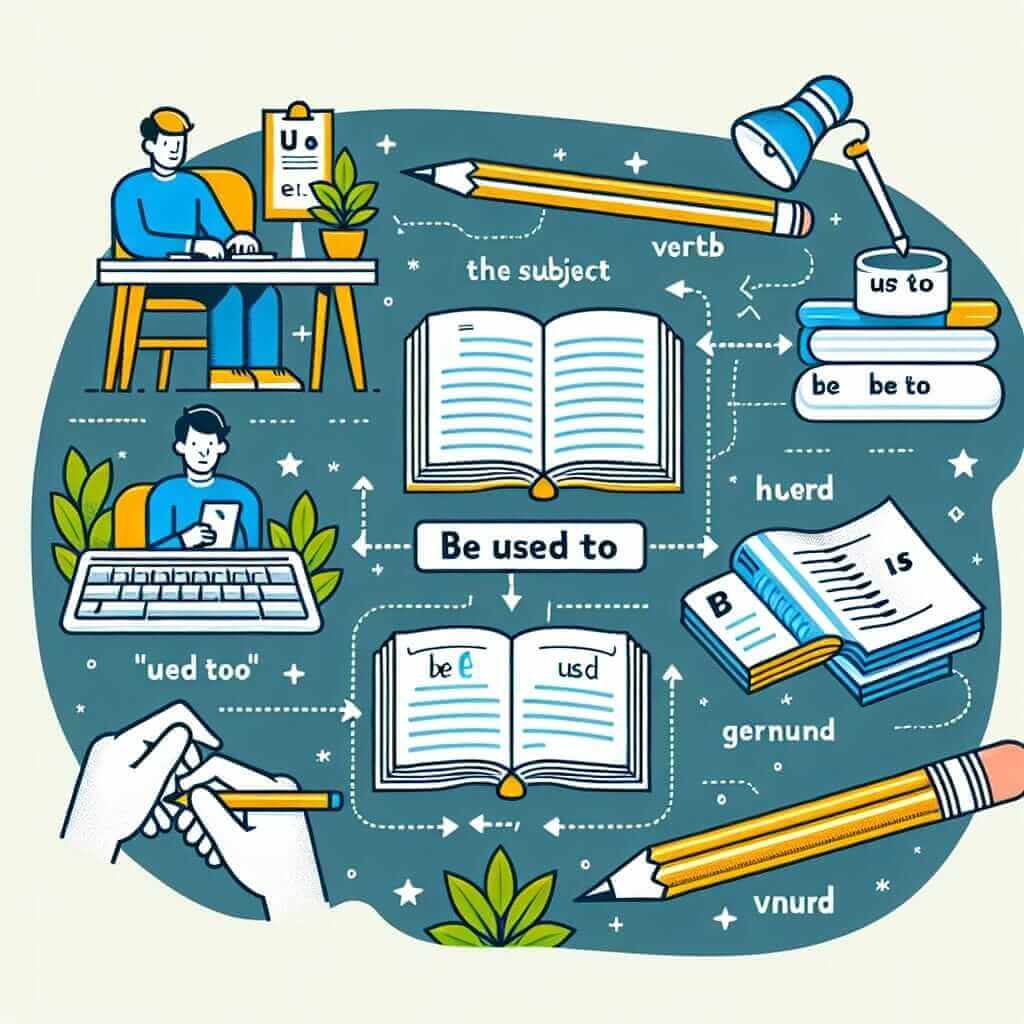“Be used to” – a seemingly simple phrase that often trips up IELTS test-takers. Why is it so tricky? The answer lies in its dual nature, expressing both past habits and present states of familiarity. This guide will equip you with the knowledge and skills to use “be used to” confidently and accurately in your IELTS exam, boosting your grammar score and overall performance.
Let’s look at some examples of how “be used to” might appear in different sections of the IELTS:
Speaking:
- “I am used to living in a big city, so I found the quiet countryside quite a change.” (Here, “be used to” describes a present state of familiarity with city life.)
Writing Task 1:
- “The graph illustrates that people are becoming more used to working from home.” (This sentence explains a trend of increasing familiarity with remote work.)
Listening:
- You might hear a speaker say, “I wasn’t used to the spicy food at first, but now I love it!” (This expresses a past lack of familiarity that has changed over time.)
As you can see, “be used to” can be employed in various contexts, making it crucial for achieving a high IELTS band score.
Understanding “Be Used To”
Meaning and Usage in IELTS
In the IELTS exam, demonstrating command of “be used to” is essential for showcasing your grammatical range and ability to convey nuanced meanings. This phrase signifies familiarity or a state of being accustomed to something. It implies that an action, situation, or thing is no longer strange or difficult because of repeated experience or exposure.
Frequency in IELTS
While not appearing in every single test, “be used to” is a high-frequency phrase in the IELTS, particularly in the Speaking and Writing sections. Understanding its correct usage is vital for achieving a band score of 7 or higher, as it demonstrates your ability to use a variety of grammatical structures effectively.
The Grammar of “Be Used To”
Formula and Explanation
Let’s break down the structure of “be used to”:
[Subject] + [be verb (am/is/are/was/were)] + used to + [noun/gerund (-ing form of the verb)]
- Subject: The person or thing that is familiar with something.
- Be verb: Changes depending on the tense and subject (e.g., “am” for present tense, singular subject, “were” for past tense, plural subject).
- Used to: This part remains constant and signals familiarity.
- Noun/Gerund: The object of familiarity, which can be a noun (“city life”) or a gerund (“working from home”).

Application in IELTS Tasks
-
Speaking: Use “be used to” when discussing your experiences, habits, or opinions. For example:
- “I am used to waking up early because of my work schedule.”
- “I am not used to such cold weather; I come from a tropical country.”
-
Writing Task 1: When describing trends or changes over time, “be used to” can be employed effectively:
- “The data suggests that consumers are becoming less used to traditional shopping methods.”
- “As shown in the chart, there’s a clear indication that people are getting used to online learning platforms.”
-
Writing Task 2: Use this phrase to express your views or provide supporting arguments:
- “Many argue that children are not used to facing challenges in today’s society.”
- “It’s undeniable that technology has made us more used to instant gratification.”
Model Answers with “Be Used To”
Here’s how you can effectively incorporate “be used to” in your IELTS responses:
Speaking Part 1:
Examiner: Do you prefer living in a house or an apartment?
Candidate: Well, I am used to living in an apartment. I grew up in one, and I like the convenience and security it offers.
Writing Task 1:
The graph below shows the percentage of people in the UK who used the internet for online shopping from 2005 to 2015.
Sample Answer: The provided graph illustrates the significant growth in the percentage of UK residents engaging in online shopping between 2005 and 2015. It is evident that people have become increasingly used to the convenience and accessibility of purchasing goods via the internet.
Scoring Higher with “Be Used To”
To impress the IELTS examiner and achieve a higher band score, consider these tips:
- Tense Variation: Demonstrate control over different tenses. For example, “I was used to the noise, but now I find it unbearable” (past habit no longer present).
- Formal Tone: Use “be used to” in both formal and informal contexts appropriately. In Writing Task 1, maintain a formal tone.
- Avoiding Repetition: Utilize synonyms like “accustomed to,” “familiar with,” or “comfortable with” to prevent sounding repetitive, but ensure they fit the context.
Common Errors and How to Avoid Them
Let’s examine some common mistakes students make with “be used to”:
Error 1: Using “to” instead of “ing” after “be used to.”
Incorrect: I am used to live in a small town.
Correct: I am used to living in a small town.
Error 2: Forgetting the “be” verb.
Incorrect: I used to waking up early.
Correct: I am used to waking up early.
Error 3: Confusing “be used to” (familiarity) with “used to” (past habit).
Incorrect: I am used to play tennis every weekend, but now I don’t have time.
Correct: I used to play tennis every weekend, but now I don’t have time.
Conclusion
Mastering “be used to” can significantly elevate your grammatical range and fluency in the IELTS exam. Remember to practice using this phrase in various contexts, pay attention to the correct tense and form, and avoid common errors. By confidently incorporating “be used to” into your speaking and writing, you’ll be well on your way to achieving your desired IELTS band score.